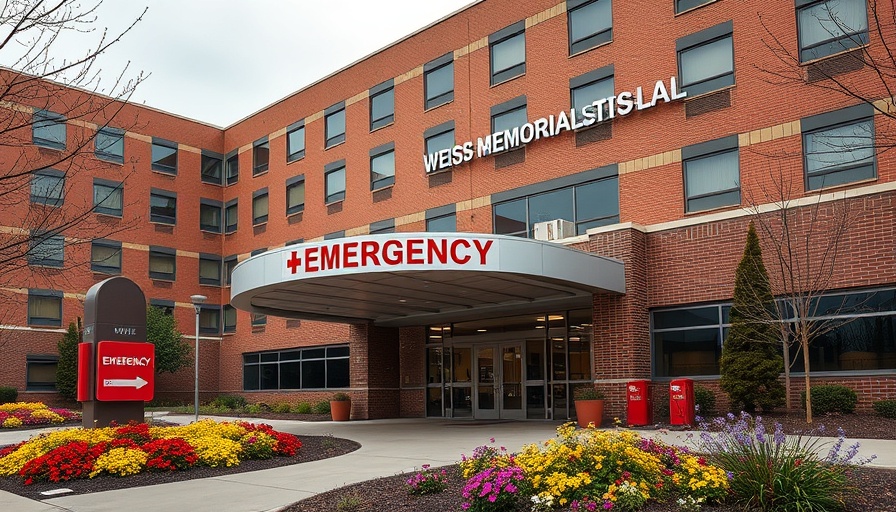
Weiss Hospital's Closure: A Wake-Up Call for Medicare Policies
In an alarming turn of events, Weiss Memorial Hospital in Uptown has closed its doors due to the loss of Medicare and Medicaid billing rights. Dr. Manoj Prasad, the hospital's owner, attributed this closure to stringent federal regulations and nursing shortages that rendered the facility non-compliant. This unfortunate situation reflects broader issues within the Medicare system, particularly its stringent compliance requirements that ultimately jeopardize the availability of essential healthcare services.
Challenges Faced by Safety-Net Hospitals
Weiss Memorial was not the only casualty in this landscape. As safety-net hospitals continue to struggle, the repercussions are felt deeply within their communities, where access to care becomes increasingly scarce. Many are questioning whether the regulatory burdens placed on these facilities are access barriers that ultimately harm those they serve, especially in low-income areas. The voices of local officials asserting that cost-cutting measures led to the hospital's downfall raise critical concerns about the balance between sustainability and service quality.
Potential Solutions for Hospital Resilience
Dr. Prasad has emphasized the need for immediate federal intervention to help revive Weiss Hospital and prevent similar scenarios at other facilities. Strategies proposed include reapplying for Medicare and Medicaid licenses, alongside implementing necessary changes identified in federal assessments. Reflecting on this story, it's clear that the journey back to operational stability for safety-net hospitals won't be simple, but the necessity of finding an effective path forward is paramount.
Community Impact: The Human Cost of Healthcare Closures
The shuttering of Weiss Hospital serves as a sobering reminder of the human stories intertwined with healthcare institutions. Families in the Uptown community now face uncertainty about where to seek medical treatment. Dr. Prasad's remarks highlight personal hardships, as he recalls, "We couldn't even buy a bottle of Tylenol," suggesting a tangible decline in operational capacity that directly affects patient care. This firsthand account resonates deeply with those who rely on local medical services, making the urgency for solutions more pressing.
The Future of Medicare and Healthcare Access
As Weiss Hospital strives for recovery, the focus must extend to legislative reform aimed at improving the Medicare system. Recent discussions among policymakers suggest the need for a reevaluation of compliance processes that could enable struggling hospitals to regain their footing. Ensuring access to quality care while upholding necessary standards will require a collaborative effort from federal, state, and local entities. The question remains, how quickly can these changes be made before more hospitals fall silent?
In sum, this crisis signals an urgent call for the reevaluation of how Medicare policies function, not only to uphold standards but to ensure the survival of institutions that serve as beacons of hope for countless Americans. Achieving a balance of regulatory compliance and service availability will take concerted grassroots advocacy, innovative policy solutions, and a renewed commitment to improving healthcare access for all.
Your Healthcare Coverage Choices
Amid these unfolding healthcare challenges, finding the right Medicare plan is critical. For those navigating their options, it’s essential to explore various coverage choices, including Medicare Advantage plans that may fit personal needs better. With so many plans based on your location, understanding the nuances—like the differences in Medicare Part B and D plans—can help you secure the healthcare benefits you deserve.
Your Perfect Medicare Medicaid Plan Awaits—Trusted Expert, Get The Benefits You Deserve NOW. (231) 571-6100
 Add Row
Add Row  Add
Add 




Write A Comment